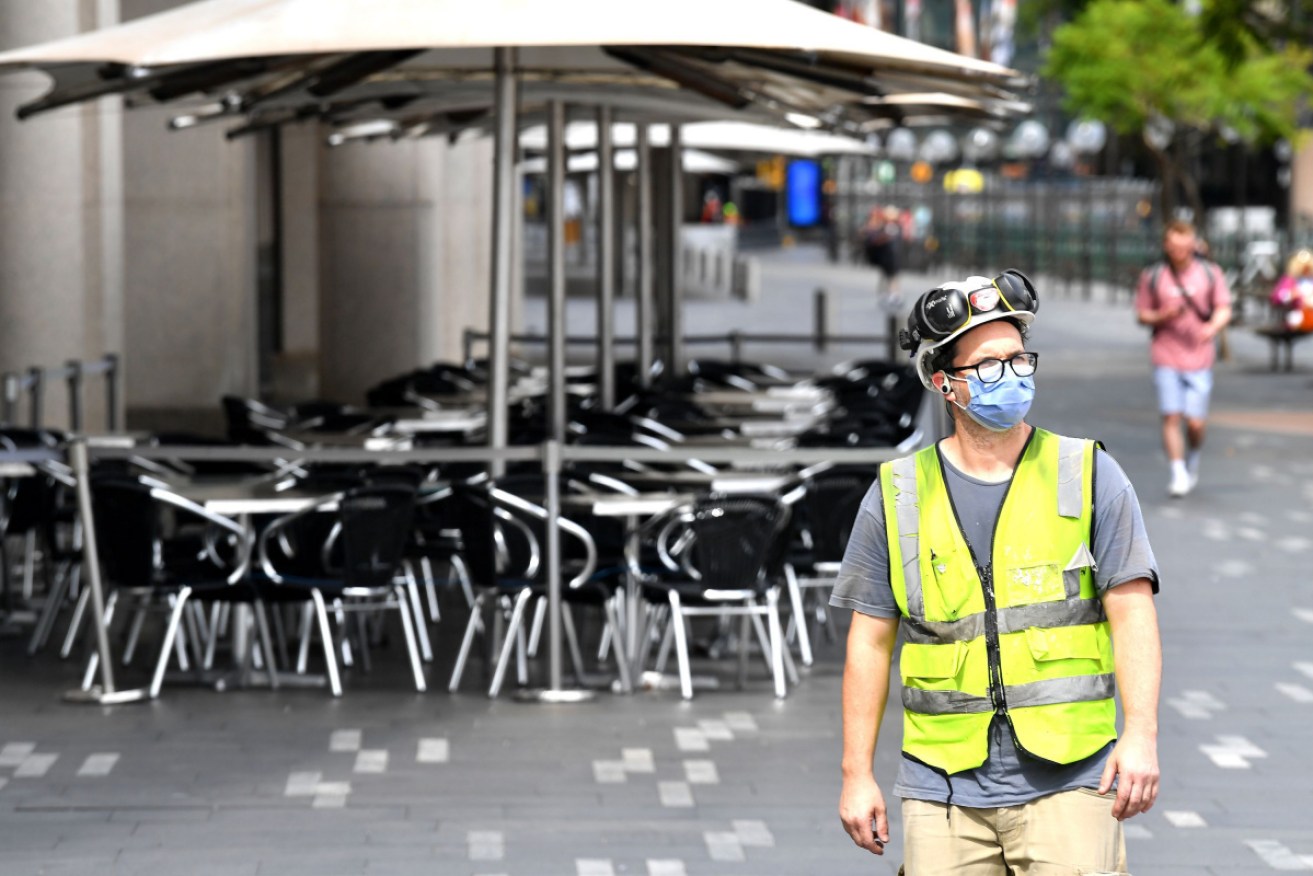Premiers balance infection risks against economic and social pain as some states ease restrictions


Mr Morrison says he wants Australia to have worked through all three steps to a "COVID-safe economy" by July.
As the number of new coronavirus cases continues to fall across Australia, some states are preparing to re-open shops and schools within weeks.
Federal Health Minister Greg Hunt said on Tuesday there had been only 100 new cases of COVID-19 in Australia in the past week, and 308 testing clinics nationwide were aiming to test thousands of people every day – prompting state premiers to review social distancing rules.
“It means that as a country we are not just flattening the curve but we are consolidating it, extending it and securing it,” Mr Hunt said.
“What that says is that Australians are doing an extraordinary job. We are winning but we have not one yet. Every day we are getting closer … We have not won yet,” he said.
Australia has 6727 confirmed cases of the coronavirus, with 111 people in hospital, 43 in ICUs and 27 people ventilators.
So far, 84 people have died. The latest was an 89-year-old woman from the Newmarch aged-care home in western Sydney, whose death was reported on Tuesday.
NSW to ease restrictions on Friday
Premier Gladys Berejiklian announced that from Friday, two adults will be allowed to visit another house for any reason, regardless of how many people live there.
Sydney’s eastern beaches are also reopening to the public, with Bondi and Bronte beaches reopened on Tuesday for exercise. Tamarama beach was open for surfing.
- Related: NSW retailers prepare to open
“We know that for many people, they’ve been cooped up in their homes for a number of weeks, and with the exception of exercising, medical needs or buying what they need or going to work, many people have been isolated in their homes,” Ms Berejiklian said.
NSW is also pushing ahead with plans for students to return to classrooms from Monday May 11.
Victoria’s hard line
Premier Daniel Andrews said coronavirus restrictions would be reassessed on May 11, when the state of emergency ends.
On Monday, he announced a plan to test 100,000 people in the next two weeks and is standing firm on school students continuing to learn at home until the end of term two on June 26.
“I don’t know what transmission will look like this week or next week, but I think the state of emergency going to May 11 is a nice line-up with the national cabinet process for a real look at changing the restrictions,” Victorian chief health officer Professor Brett Sutton said.
- Related: Classrooms to open in some states as new research shows students at risk by remote learning
Mr Andrews said he was happy to cop criticism for being too cautious given what was at stake.
His counterpart in Tasmania, Premier Peter Gutwein agreed, saying the state would not follow others in easing social restrictions.
Restrictions closing non-essential retail in Tasmania’s north-west will remain at least until May 3. Most students began term two by remote learning on Tuesday.
“Where some states might lift restrictions early, I don’t believe we will be doing that. I don’t intend to make knee-jerk reaction and take us to a position where the restrictions come off too quickly and then leaves us exposed,” Mr Gutwein said.
Queenslanders can go for picnics
Queensland Premier Annastacia Palaszczuk announced on Tuesday stay-at-home restrictions would ease from Saturday.
Family picnics and weekend drives will be allowed, national parks will reopen and people will be able to shop for clothing and shoes.
“We recognise that Queenslanders have done a great job in trying to flatten that curve. So we also know it’s having a big impact on people’s mental health. We thought we could lift some stay-at-home restrictions,” she said.
People must stay within 50 kilometres of their homes, and social distancing will still be enforced.
Students are also learning from home in large numbers. The state wants children kept at home where possible – a restriction that will be reviewed on May 15.
In Western Australia, restrictions were eased on Monday, allowing a two-person limit on non-work activities, including picnics, boating, hiking and camping.
Importantly, group exercise eased from two to 10 people, provided they adhere to social distancing and good hygiene and weddings and funerals can have up to 10 people present.
Premier Mark McGowan said it was a “cautious relaxation” of restrictions.
Students will return to the classroom from May 29.
Elsewhere on Tuesday, Treasury secretary Steven Kennedy told a Senate committee that some businesses would close permanently as he outlined the unprecedented speed of the economic shock caused by the virus.
- Related: Economic coronavirus shock
The economy could be dealt an incredible blow if China follows through on a consumer boycott threat to agriculture, tourism and higher education.
Senior ministers have pushed back against inflammatory comments from the Chinese ambassador, who received a call from the foreign affairs department.
-with AAP








